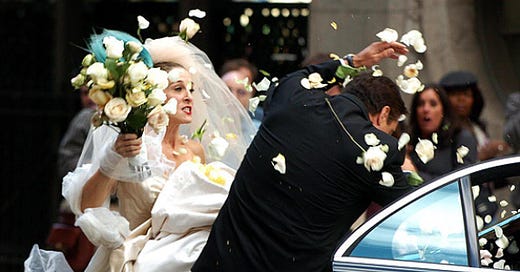Consider this “to be continued” before it even begins...
You know those bouncy, ping-pong match conversations when you don’t necessarily agree, but you’re not adversarial, either? When you’re just lobbing thoughts over the net, two armchair philosophers seeking provisional truth?
That was my friend and I the other day when marriage came up.
Marri…




